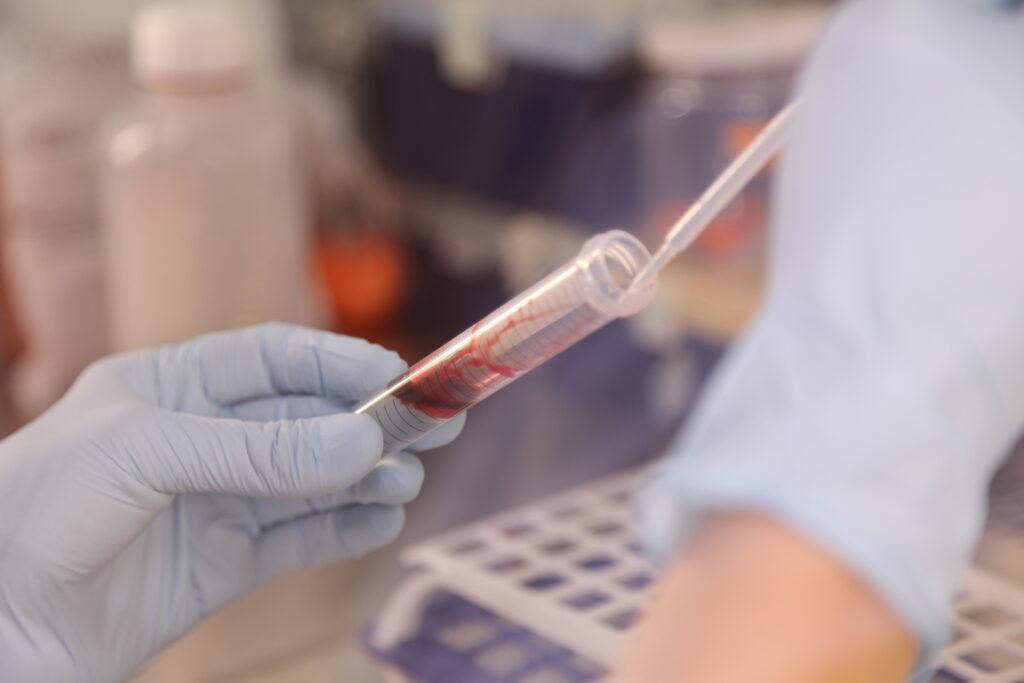Study finds screening for ovarian cancer did not reduce deaths
A large-scale randomised trial of annual screening for ovarian cancer did not succeed in reducing deaths from the disease, despite one of the screening methods tested detecting cancers earlier, according to results published in The Lancet.

The latest analysis from the UK Collaborative Trial of Ovarian Cancer Screening (UKCTOCS), led by UCL researchers, showed that while annual multimodal screening involving a blood test assessment followed by an ultrasound scan detected cancers at an early stage, it did not reduce deaths from the disease.
Professor Ranjit Manchanda from the Centre for Cancer Prevention at the Wolfson Institute of Preventive Medicine, Queen Mary University of London is co-author and Principal Investigator at the Barts Health NHS Trust site on the UCL-led study.
Commenting on the findings, Professor Manchanda said:
“This was a large and rigorous trial with a clear, albeit disappointing, result. Despite detecting significantly more ovarian cancers at an earlier stage, this did not translate into lives saved. We need newer tests/strategies that can demonstrate a reduction in deaths before recommending screening for the general population. UKCTOCS has provided valuable insights into our understanding of ovarian cancer as well as other diseases.”
In the UK, over 4,000 women die from ovarian cancer each year. Currently, there is no national screening programme in the UK for ovarian cancer and cases are usually not diagnosed until the cancer is at a late stage and hard to treat. UKCTOCS was designed to test the hypothesis that a reliable screening method that picks up ovarian cancer earlier, when treatments are more likely to be effective, could save lives.
The study looked at more than 200,000 women aged 50-74 at recruitment who were followed up for an average of 16 years. The women were randomly allocated to one of three groups: no screening, annual screening using an ultrasound scan, and annual multimodal screening involving a blood test monitoring changes in the level of the protein CA125 followed by an ultrasound scan as a second line test.
The researchers found that, while the approach using multimodal testing succeeded in picking up cancers at an early stage, neither screening method led to a reduction in deaths.
Blood test screening picked up 39% more cancers at an early stage (Stage I/II), while detecting 10% fewer late-stage cancers (Stage III/IV) compared to the no screening group. There was no difference in the stage of cancers detected in the ultrasound group compared to the no screening group.
The initial analysis of deaths in the trial occurred in 2015, but there was not enough data at that time to conclude whether or not screening reduced deaths. By looking at five more years of follow up data from the women involved, researchers are now able to conclude that the screening did not save lives.
Professor Usha Menon (MRC Clinical Trials Unit at UCL), Chief investigator of UKTOCS, said:
“UKCTOCS is the first trial to show that screening can definitely detect ovarian cancer earlier. However, this very large, rigorous trial shows clearly that screening using either of the approaches we tested did not save lives. We therefore cannot recommend ovarian cancer screening for the general population using these methods.”
Valuable insights for future clinical trials
Professor Nick Lemoine, Director of the Cancer Research UK (CRUK) Barts Centre and Medical Director of the NIHR Clinical Research Network, said:
“These important findings from a large-scale trial, involving 200,000 participants, show that annual screening did not succeed in reducing deaths from ovarian cancer.
“However, it’s important to note that negative results can be as important as positive. The study has provided important new evidence and insights into how to conduct and analyse future large-scale randomised clinical trials into ovarian cancer, in the hope that this will prevent and diagnose this disease more effectively in the future.
"We thank every single person who took part.”
The UKCTOCS trial was funded by the NIHR Health Technology Assessment (HTA) Programme and the charities CRUK and The Eve Appeal.
Category: General News, Publications

No comments yet